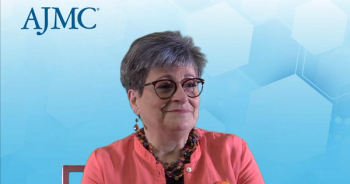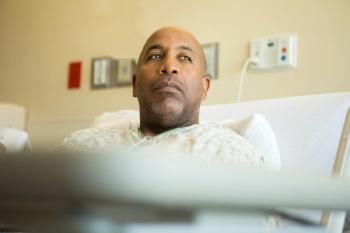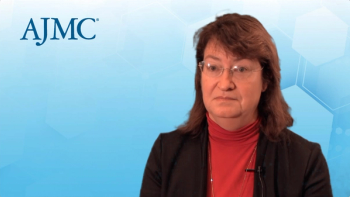
Health System
Latest News

Latest Videos

CME Content
More News

A review explored the connection between 4 domains (structural, sociocultural, health care, and physiological) contributing to the persistence of inequities in epilepsy risk and outcomes in the United States, as well as key areas of intervention to promote health equity.

State courts in South Carolina and Idaho ruled in opposite ways on abortion bans; virtual COVID-19 diagnostic and treatment launches in community; generic methylphenidate medication shortages negatively impact ADHD treatment.

Coverage of our peer-reviewed research and news reporting in the health care and mainstream press.

Abstract findings presented at the 2022 American Academy of Dermatology Annual Meeting showed that patients with moderate to severe psoriasis achieved improvement in work-/study-related productivity with tildakizumab vs placebo after only 2 doses.

HHS updated guidance for states using Medicaid managed care to manage nonmedical needs; anxieties surrounding new variants rise amidst underreported COVID-19 cases in China, which defended its counts; public health campaigns try new strategies to increase trust and promote immunizations.

Michael Thompson, president and CEO of the National Alliance of Healthcare Purchaser Coalitions (National Alliance), addressed the current state of health equity strategies in the workplace and how employers can better address inequities in their benefit designs, programs, and policies in the near future.

Dual-regimen abortion pills authorized for pharmacy sale by FDA; health professionals turn a critical eye to US concerns about COVID-19 in China while domestic cases rise here as vaccination rates drop; drug manufacturers are collectively raising prices early this month on medications from autoimmune treatments to shingles vaccines to cancer treatments.

Approximately 14,280 more US patients with psoriasis were estimated to initiate a biologic in Spring than in other seasons, and over 840 more biologic users switched in Spring than in Winter.

The Chinese government warns of backlash for countries requiring COVID-19 testing of travelers from China; monoclonal antibody drugs show some promise against infectious diseases, but costs need to be lower; the role of FDA and Biogen in approving Alzheimer drug Aduhelm is detailed in a scathing Congressional committee report.

Lower US life expectancy attributed to COVID-19, drug overdoses; suggestions to mask up lack teeth even as respiratory illnesses and hospitalizations spike; emergency department (ED) doctors look to curb private equity investments in staffing firms.

Jessica Allegretti, MD, MPH, medical director of the Crohn's and Colitis Center, Brigham and Women's Hospital, explained the mechanism of action for Rebyota, the first fecal transplant therapy approved by the FDA for the prevention of recurrent Clostridioides difficile infection (CDI) in individuals 18 years and older, following antibiotic treatment for recurrent CDI.

Incidence of Parkinson disease in North America was 50% higher than previous estimates of 60,000 diagnoses annually.

Coverage of our peer-reviewed research and news reporting in the health care and mainstream press.

Liz Lightstone, MBBS, PhD, FRCP, professor of Renal Medicine for the Faculty of Medicine, Imperial College London, discussed how sexism and other factors cause certain symptoms of lupus nephritis to be overlooked, contributing to delays in diagnosis and care.

The effects of the COVID-19 pandemic were clear in the US national health care expenditure analysis of spending last year, as federal spending dropped, but health care use rebounded in 2021.

Non-White patients with hidradenitis suppurativa reported longer delay in diagnosis than their White counterparts. In addition, Black patients did not receive dermatologic care as early in their disease course as other racial groups.

Use of direct-acting antiviral (DAA) treatment (without interferon) was shown to reduce liver and nonliver complications, as well as improve long-term overall survival among patients with chronic hepatitis C.

A national survey demonstrated differences in organizational capacity between hospitals participating in Medicare bundled payment programs and those coparticipating in both Medicare and commercial bundled payment programs.

As they headed home Thursday from the 2022 American Society of Health-System Pharmacists (ASHP) Midyear Clinical Meeting & Exhibition in Las Vegas, pharmacists pitched in to help a man having a medical emergency aboard a United flight bound for Newark, New Jersey.

Patients with pemphigus reported lower risk of myocardial infarction and stroke, among other cardiovascular and metabolic outcomes, when treated with rituximab compared with the first-line corticosteroid-sparing agents azathioprine and mycophenolate mofetil.

The novel coalition was announced at the Institute for Healthcare Improvement (IHI) Forum, which took place December 4-7 in Orlando, Florida.

Frequency of orthostatic hypotension among Ethiopian patients with Parkinson disease (PD) was shown to be higher than that among healthy controls, with a higher proportion of constipation, urinary urgency, and nocturia symptoms reported in those with PD.

There is new data coming out on complementary and alternative therapies for dementia, including supplements, mindfulness techniques, exercise, music therapy, and more, said Kalin Clifford, PharmD, BCGP, BCPS, FASCP, associate professor, Geriatrics Division, Texas Tech University Health Sciences Center, Jerry H. Hodge School of Pharmacy.

Some of the latest trends in the health-system pharmacy space are ones that have already been around for a while, and organizations will need to understand how to address them at the local level, explained Marie A. Chisholm-Burns, PharmD, PhD, MPH, MBA, FCCP, FASHP, FAST, executive vice president and provost at Oregon Health and Science University.

Once patients with HIV start treatment, pharmacists can play a key role in addressing patient accessibility and affordability of HIV treatments and promoting adherence, said Dena Behm Dillon, PharmD, AAHIVP, HIV clinical pharmacy specialist, University of Iowa Health Care.
















